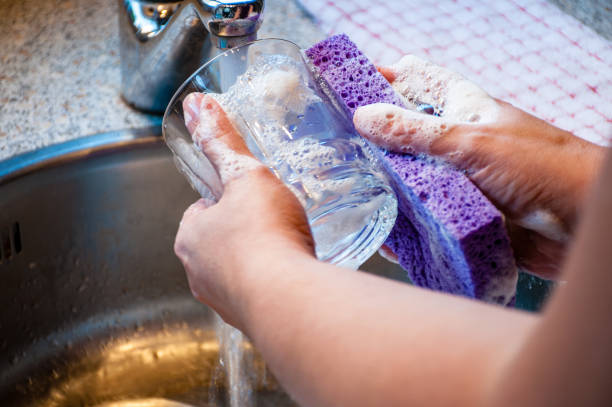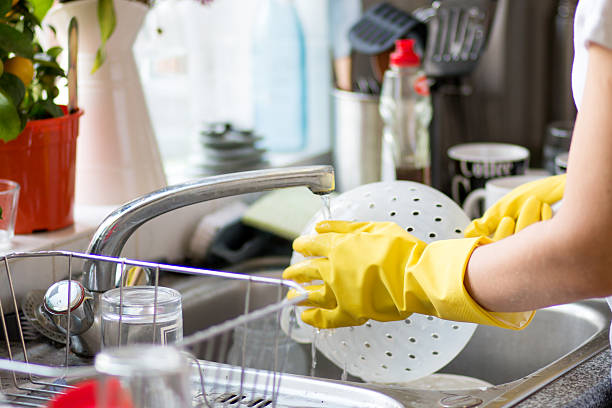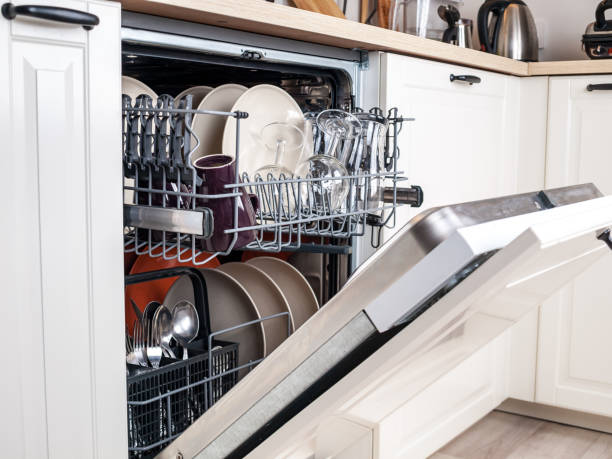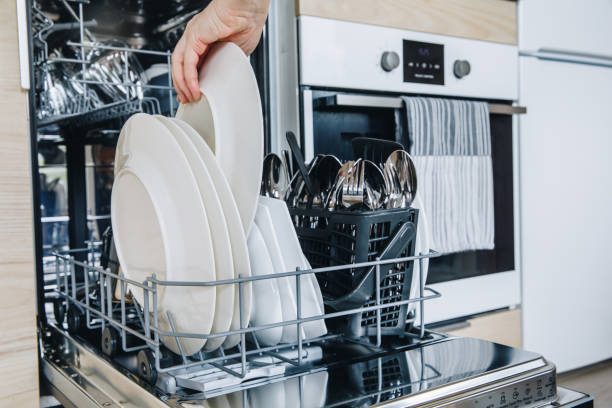Handwashing vs Dishwashers: is there more to it or a simple matter of choice

For a while now, there has been that raging argument over whether it is better to wash your dishes by hand or like most other things adopt technological advancements and wash your wishes via a dishwasher.
It might not surprise you to know that, there isn't a straight answer to which is better because like most things, they both have their benefits and both also have their shortcomings. There are still reservations about how effective dishwashers can be, but they've been vastly improved on since they became common back in the 70's.
Normally, most people tend to go for the natural and the more mindful approach of using ribbon scrubbies with the best natural dish soap available, like its been done for ages. But with the Advent of dishwashing machines, they've become such a popular choice for washing dishes. "To kill most of the bacteria on a dirty dish, water must reach a scalding 140° Fahrenheit. This temperature can be reached easily in a dishwasher, but in a sink it's almost impossible."
Nowadays, dishwashers are built with conservation in mind, full sized dishwashers consume 5 gallons of water every cycle and according to a research done by the University of Bonn, washing a whole load of dishes by hand requires at least 26 gallons of water on the average. Although this varies as it solely depends on the individual, while some people might use just about 8.7 gallons of water other people might be up to 116 gallons.
While to equal a dishwasher's water efficiency, an average kitchen water faucet has a flow rate of 2.2 gallons per minute, that means you will only have 2 minutes to wash a full dishwasher's load of dishes. To now wash a complete pack of dishes by hand with less than 5 gallons of water would practically be a difficult thing to do meaning dishwashers uses significantly less water. While using dishwashers can also be very useful as it removes the need to pre rinse your dishes, up to 6000 gallons of water can be saved from wastage each year once you stop to pre rinse your dishes, not to mention that dishwashers uses some high level of water temperature of which with our bare hands we will not be able to handle.

Time saving can also be a massive factor when it comes to making use of an automatic dishwasher, as it washes 12 to 14 place settings simultaneously. For some it can be tiring to stand, wash, dry and rinse each dish individually when whereas you might save up to six hours a week by just using a dishwasher while it can also be far more hygienic. With these machines they can also increase the value of your home.
Conversely, In some places it is part of family bonding and togetherness to teach children how to clean the house and wash dishes by their hands. That said, there are certain potential benefits of still using the old phenomenon of hand washing your dishes. Some people may fiind it more satisfying knowing that there dishes is as clean as how they want it to be and also like to air dry while it can also be a more certain way to remove dirt and leftover food particles completely, that itself can be very therapeutic and enjoyable with the use of the right soaps that are gentle on the hands and scrubbers.
Moreso, when you handwash your dishes, the nature of the sediments can be cleaned thoroughly, whereas dishwashers can't recognize the nature of the dust on the item to be washed and has to be relied only on the washing agents used. A lot of water can also be wasted in a dishwasher, especially hot water and it can leave a huge hole in your water, electric and gas bills. While most machines require you to rinse/remove all food from the dishes before you put them in otherwise you risk damaging your machine. Meaning you're having to pre wash them before you wash them.

Being environmentally conscious, washing dishes by hand can be better than using an automatic dishwasher taking into consideration the energy usage of a dishwasher.
Generally, when washing your dishes you want to do the cleanest ones first, mostly because of things like grease which when partially dissolved will probably stick to other things in the water. Therefore when doing your dishes you should first, empty the sink completely of all dirty dishes, remove all food debris and remnants from sink and drain. Take some scrub powder and a subbie pad. Rinse, sink, scrub with powder, making sure to clean drain plug as well. Rinse with hot water. Use a dishwashing liquid and fill the sink with a small squirt and hot water, measure the temperature to make sure it's as hot as you can stand it. Put all glass glasses in soapy water and wash.
And to attain a sustainable way of washing dishes by hand: use as little water as necessary and don't leave it running, use a natural dishwashing soap, or homemade; no need for too much soap; scrape off food remnants before washing; put studsy water in sink or dishpan and wash all dishes in it, starting with your glasswares, then cutlery, dishes and finish with cooking dishes and pots and pans; rinse by dipping in a second dishpan or sink of warm water, filling only as much as needed; replace if it gets too sudsy.

At the end of the day, it's still up to you to choose your preference between handwashing and using a dishwasher. For someone who lives in a large household with many occupants, it saves time to have an efficient modern dishwashing machine. While for someone in a small household of one or two, having a dishwasher might be highly unnecessary, when you can be more moderate and simply handwash and cut back on energy usage.
It is up to you Indeed.
Post a comment